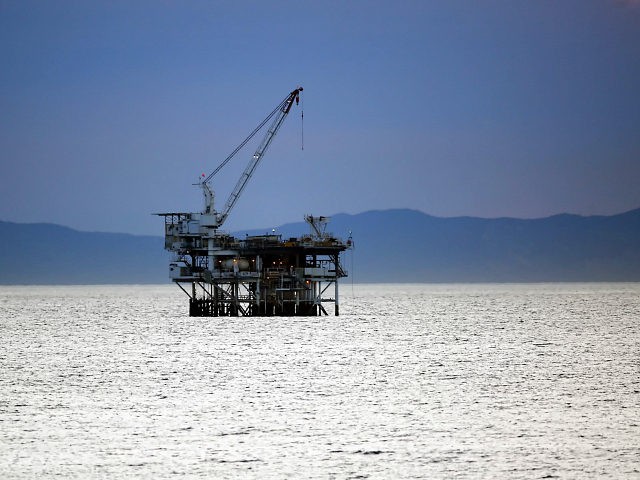The pushback following the Trump administration’s announcement this month that it has a five-year plan to determine what areas of the Outer Continental Shelf off the coast of the United States are appropriate for oil and gas development continues, with some governors and members of Congress opposing it.
That criticism grew louder last week after Department of Interior (DOI) Secretary Ryan Zinke met with Republican Florida Gov. Rick Scott and announced that that state’s coastline would not be considered for drilling under the plan.
Reuters reported that 22 Democratic U.S. senators from 12 states sought the same status as Florida in a letter to Zinke.
“Just like Florida, our states are unique with vibrant coastal economies,” wrote the lawmakers, who include Jack Reed (D-RI), Cory Booker (D-NJ), and Kamala Harris (D-CA).
“Providing all of our states with the same exemption from dangerous offshore oil and gas drilling would ensure that vital industries from tourism to recreation to fishing are not needlessly placed in harm’s way,” the letter stated.
Reuters reported on governors’ reactions to the plan and the Florida decision:
South Carolina’s Republican Governor Henry McMaster asked Zinke for an exemption, citing the value of his state’s coastal tourist economy.
Maine Governor Paul LePage, a Republican, and Alaska Governor Bill Walker, an independent, are the only coastal state governors who support the expansion of offshore drilling, with many of the rest seeking exemptions following the Florida decision.
Heather Swift, spokesperson for DOI, told Breitbart News that the agency is communicating with all stakeholders, including governors of coastal states.
Swift also explained that the plan involves a long process of public comment and other input before any final decision is made.
“Creating a five-year program is a very open and public process, and Secretary Zinke looks forward to meeting with governors and other coastal representatives who want to discuss the draft program,” Swift said. “Aside from those important meetings, there is continued outreach by the department.”
‘The Bureau of Ocean Energy Management (BOEM) has planned 23 public meetings, in our coastal states, to secure feedback directly from citizens, to ensure all viewpoints are taken into consideration as the Department moves forward,” Swift said. “Those unable to attend the public meetings are invited to submit their comments to www.regulations.gov.”
The comment deadline is March 9, 2018.
“All comments will be considered in developing a Proposed Program document — the next step in the five-year program — that will be made available for public comment and review by Governors of affected states and Congress before final decisions are published,” Swift said.
The criticism, however, is not limited to federal and state officials. Some in the oil and gas industry have also panned the Florida decision.
“This announcement is premature” Jack Gerard, president, and CEO of the oil and gas trade association American Petroleum Institute, said in the statement. “Americans support increased domestic energy production, and the administration and policymakers should follow the established process before making any decisions or conclusions that would undermine our nation’s energy security.”
“The ability to provide affordable energy for consumers and meet the growing domestic and global demand depends on the ability to safely and responsibly explore and develop our offshore energy resources, including in the Eastern Gulf of Mexico,” Gerard said.
“IADC hailed last week’s action because we believe that it’s important to assess all of the nation’s OCS resources, which belong to the American people, to determine their potential for energy development,” Jason McFarland, president of the International Association of Drilling Contractors, said in a statement.
“Secretary Zinke’s remark to remove Florida from consideration for any new oil and gas platforms is undisciplined and arbitrary and stands in stark opposition to the deliberative and inclusive process envisioned by the Outer Continental Shelf Lands Act, not to mention it represents an apparent about-face by the administration, particularly at this very early stage in the process,” McFarland said. “Regardless of one’s viewpoint on whether or not any particular offshore area should ultimately be offered in a lease sale, the secretary’s latest action should be viewed as contrary to the process.”
Zinke said in the announcement of the plan: “Responsibly developing our energy resources on the Outer Continental Shelf in a safe and well-regulated way is important to our economy and energy security, and it provides billions of dollars to fund the conservation of our coastlines, public lands, and parks,” Zinke said. “Today’s announcement lays out the options that are on the table and starts a lengthy and robust public comment period.”
“Just like with mining, not all areas are appropriate for offshore drilling, and we will take that into consideration in the coming weeks,” Zinke said. “The important thing is we strike the right balance to protect our coasts and people while still powering America and achieving American Energy Dominance.”
Meanwhile, Sen. Susan Collins (R-ME) joined nine Democratic senators to introduce the New England Coastal Protection Act to ban offshore drilling off the New England coast, citing protection of the states’ fishery and tourism industries, Reuters reported.

COMMENTS
Please let us know if you're having issues with commenting.